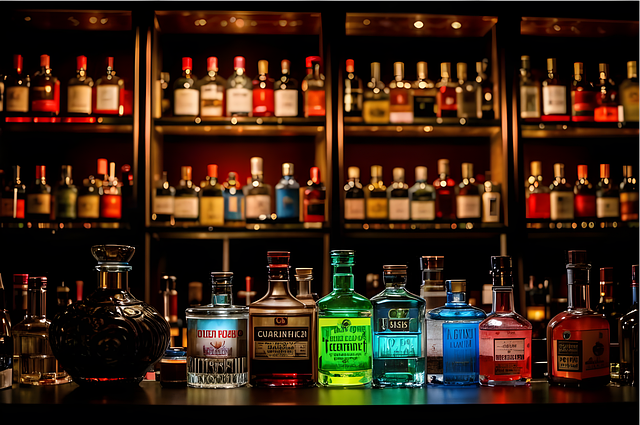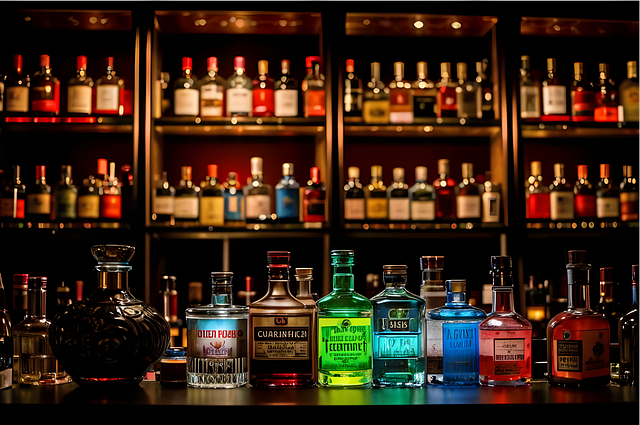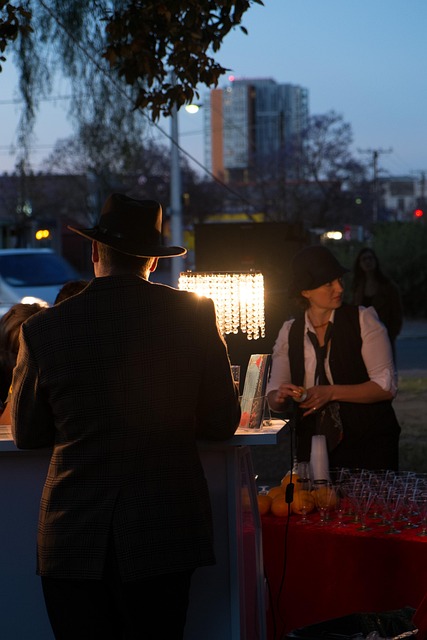In Oregon's Prohibition era, Lane County became a focal point for dry law enforcement led by self-appointed 'dry agents' or 'prohibitionists'. These enforcers, including Captain John M. Jones and District Attorney James B. Watson, battled speakeasies, bootleggers, and organized crime while women played unexpected yet crucial roles. The period was marked by high-stakes clashes between authorities and criminals like "Whiskey" Bill Smith, reflecting the intense struggle over Oregon's prohibition laws.
“Lane County, Oregon, during the Prohibition era was a unique blend of law enforcement, rebellion, and resilience. This article delves into the intricate history of this period, highlighting key figures who shaped its narrative. From the early enforcers who guarded against illegal liquor to the rise of speakeasies and the women who played crucial roles in maintaining order, Oregon’s Prohibition law enforcement network was a labyrinthine symphony of local heroes and underdogs. Discover the tales of noted criminals and their encounters with Lane County’s dry laws, offering a glimpse into a time when spirits—and the laws surrounding them—were at the forefront.”
- Early Prohibition Enforcers in Lane County: Local Heroes and Their Roles
- The Rise of Speakeasies and the Underdogs Who Combated Them
- Key Figures in the Oregon Prohibition Enforcement Network
- Women in the Prohibition Era: Unsung Champions of Law and Order
- Noted Criminals and Their Confrontations with Lane County's Dry Law
Early Prohibition Enforcers in Lane County: Local Heroes and Their Roles

In the early days of Prohibition in Oregon, Lane County saw the rise of local heroes who took on the challenging task of enforcing the new law. These enforcers played a crucial role in combating illegal liquor activities that had flourished in the region prior to 1920. Armed with determination and a sense of duty, they navigated the bustling streets and backwoods, ensuring that the prohibition law was upheld.
The Enforcers, often referred to as ‘dry agents’ or ‘prohibitionists’, were a diverse group comprising local law officers, volunteers, and even citizens who had sworn to protect their community from the illegal sale and consumption of alcohol. Their duties ranged from raiding speakeasies and underground distilleries to monitoring border crossings to prevent contraband smuggling. These brave individuals faced dangerous situations, often putting themselves at risk to uphold a law that divided communities and sparked intense passions across Oregon and the nation.
The Rise of Speakeasies and the Underdogs Who Combated Them

During the Prohibition era, as the sale and transportation of alcohol became illegal across the United States, including Oregon, a new underground culture emerged—speakeasies. These hidden bars and clubs, often disguised as legitimate businesses, became hotbeds for rebellion against the dry law. Lane County, Oregon, was no exception to this trend. Local entrepreneurs and underworld figures found creative ways to cater to the thirsty masses, establishing clandestine establishments that thrived on the black market.
In response, Prohibition law enforcement in Oregon stepped up their efforts to stamp out these illicit operations. The Underdogs, as they were sometimes called, included diligent policemen and revenue agents who risked their lives to disrupt speakeasy activities. Their work was fraught with danger, as the owners and operators of these establishments often employed violent tactics to protect their illegal enterprises. This period is marked by a constant cat-and-mouse game between law enforcers and speakeasy kings, leaving an indelible mark on the history of Lane County and Oregon during one of the country’s most turbulent social periods.
Key Figures in the Oregon Prohibition Enforcement Network

In the tumultuous era of Prohibition in Oregon, several key figures emerged within the state’s prohibition enforcement network. These individuals played pivotal roles in combating illegal liquor trafficking and upholding the newly instated dry laws. One notable figure was Captain John M. Jones, a veteran lawman who led the Oregon State Police’s efforts to eradicate bootlegging. With his unwavering dedication, Captain Jones and his team patrolled the state’s rugged terrain, uncovered clandestine distilleries, and arrested numerous criminals involved in the illicit liquor trade.
Another influential personality was District Attorney James B. Watson, known for his relentless pursuit of alcohol-related offenses. Watson worked closely with local law enforcement agencies, prosecutors, and informants to dismantle organized crime syndicates that had infiltrated Oregon’s prohibition landscape. His tireless efforts resulted in numerous convictions and sent a strong message across the state: the rule of law would prevail despite the challenges posed by bootleggers and speakeasies. This collaborative approach between key figures like Captain Jones and legal representatives like Watson formed the backbone of Oregon’s prohibition enforcement network, shaping the state’s history during this pivotal period.
Women in the Prohibition Era: Unsung Champions of Law and Order

During the Prohibition era, women in Lane County, Oregon, stepped into unexpected roles as unsung champions of law and order. With men largely occupying traditional enforcement positions, women filled the gaps, becoming a significant force in maintaining the peace and upholding prohibition laws. They served as police officers, bootleggers, informants, and even speakeasy owners, showcasing remarkable resilience and determination in a male-dominated field.
These women were not just passive bystanders in the struggle against illegal alcohol sales; they actively participated in raids, provided crucial intelligence, and testified in court. Their contributions often went unnoticed, yet their impact was profound in keeping the community stable during a time of rampant crime and corruption. In Lane County, Oregon, these female figures played a vital role in the intricate web of prohibition law enforcement, leaving an indelible mark on history.
Noted Criminals and Their Confrontations with Lane County's Dry Law

In the heat of Oregon’s prohibition era, Lane County became a battleground for criminals seeking to profit from illegal alcohol sales. Noted figures in this underworld faced off against the region’s stringent dry law enforcement. These confrontations often played out in dramatic raids and high-speed chases, with local authorities determined to quash any infractions.
One infamously notorious criminal was “Whiskey” Bill Smith, known for his bold operations that flouted the prohibition laws. His defiance led to several tense standoffs with law enforcement, who were relentless in their pursuit. Other notable criminals included the “Moist” Murphy gang, whose moist (and illegal) dealings kept them on the constant run from the authorities. These encounters highlight the struggles between those seeking to thrive off the underground trade and the determined forces working to enforce Oregon’s prohibition law.
